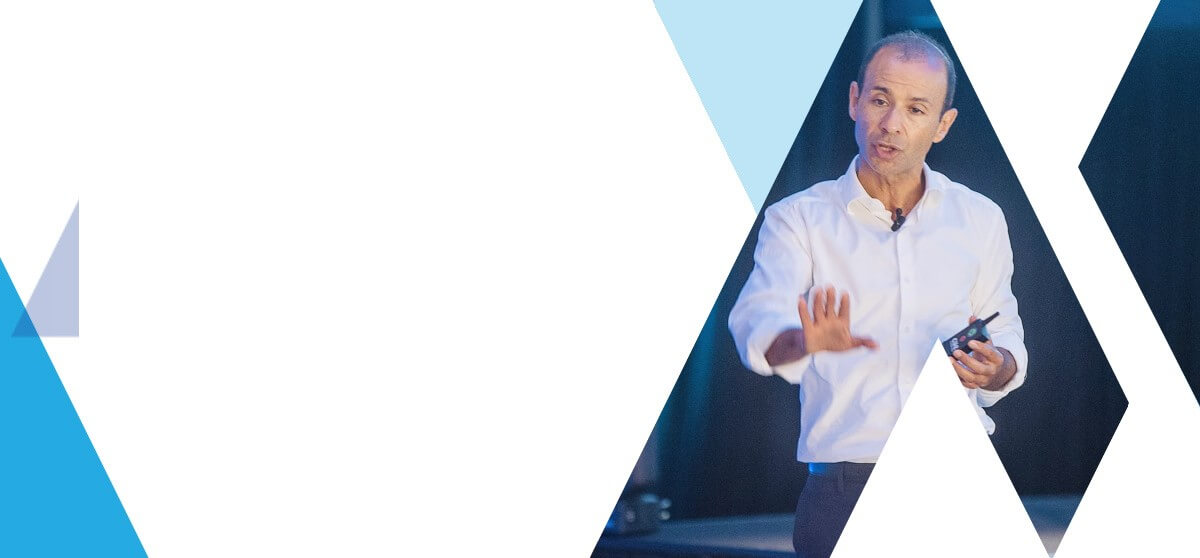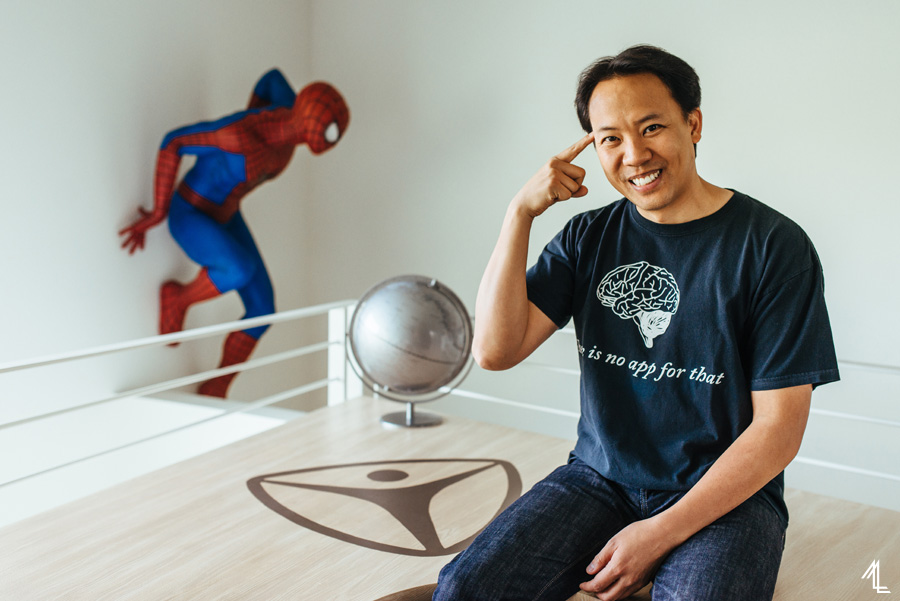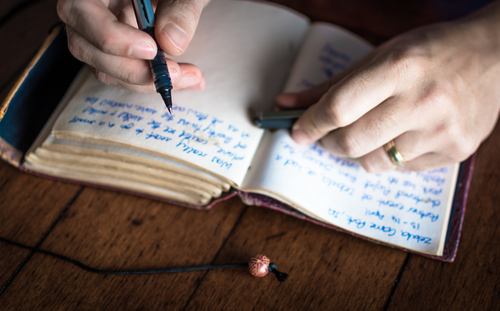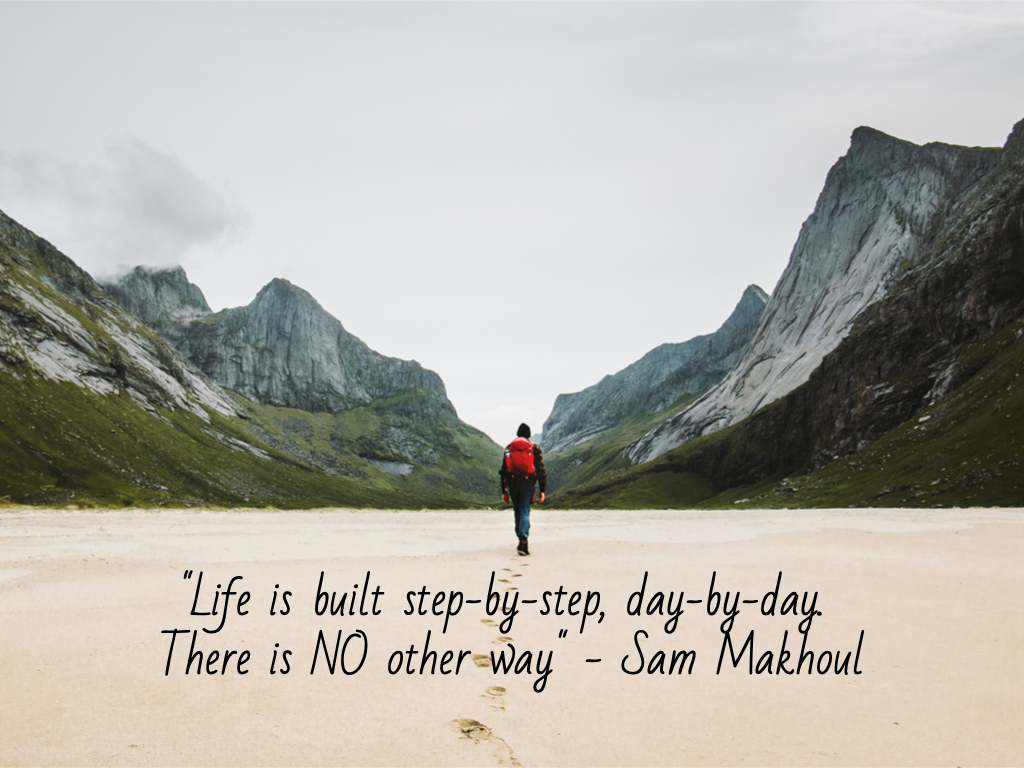Did you know that every time you focus on what you don’t have and take what you have for granted you enter into a state of systemic lack of gratitude that leads you down the path of unhappiness; and for some, misery and depression. DID YOU ALSO KNOW THAT, in this negative state, your mind sends a message to your physical cells to die? That’s right. This accelerates your ageing and shortens telomere length that makes you look and feel older. In this article I will provide you with the antidote. And it’s NOT gratitude as you know it.

Last week I brought you Habit #1 as part of the series in our academy’s daily system for living – featuring 4 rituals, 5 habits and 6 life-hacks. We have already covered the 4 essential Daily Rituals. (Incidentally the difference between rituals and habits is in the timing. Rituals are scheduled so you show up at the same time every day. Habits are something you do throughout the day). The link to all these prescriptive articles is on the A Higher Branch website. For now I want you to focus on what I call the battle between 1% and 99%. 99% wins hands down right?

1% vs 99%
Most people know of the power of journaling gratitude. This is where you sit at the end of the day and write down everything you are grateful for in life, blah blah blah… This way of practising gratitude is mediocre at best (I will admit however that it is better than nothing). Plus you will find it difficult to persist because you can end up writing the same thing every day and will quickly get bored.
I call it ‘mediocre’ because the rest of your day is unaccounted for. You have on average 16 waking hours. That is 960 minutes. If you practice gratitude for 10 minutes it means you have spent a miserly 1% of your day focused on being grateful. The question is: What are you focusing on the rest of your 950 minutes? The other 99% of the time? What is going on in your thoughts and feelings? What is inhabiting your heart and mind? Are you truly living in ‘a state’ of constant gratitude?
1% can never defeat 99%.
In the 21st Century, we are constantly bombarded with media and material wants designed to keep us on the hedonic treadmill. Which means we are constantly not happy with who we are or what we have. This is a sad state to be in – literally. If you are spending 99% of your day in that sad state, you are continuously sending signals to your cells to die. We call it ‘going after our goals’ or ‘progress’ or ‘winning’ or ‘achieving’, but in reality it is a discontentment with our life. When we are stuck in this cycle we cannot really be giving thanks for each and every powerful fulfilling moment. Instead, we are constantly focused on what we do NOT have and this causes us to take what we have for granted. So can 1% of gratitude override 99% of discontentment? Clearly not.
There is a rule in this universe. If you consistently take what you have for granted, it will either abandon you or be taken from you. Be it the people in your life: your family, your partner, your friends, your staff, your colleagues or your customers. Or your health, your wealth and your peace of mind.
In this 99% state you are also more inclined to be irritated throughout the day and this puts you more and more in the zone where you are constantly blaming and complaining about the state of your life and how you are “wanting change”. Pardon the cliche: Change is within.
“You will never materialise a magnificent future if you are not in love with the present”

Habit #2: Situational Gratitude
The Powerful Habit I learned from My Grandmother Rose
When you are in a constant state of gratitude throughout the day, you become innately happy without effort. You will not have to write anything down.
I grew up in a peaceful little village at the foothills of Mount Lebanon. As a boy I was always shadowing my grandmother as she harvested seasonal produce, milked cows and sheep, fetched eggs, cooked slow meals and baked bread. My role was to run and pick herbs for her as she stirred her old warped but deliciously coated pots that had the scent of fennel seeds, thyme and ghee. But most of the time I was listening to her speak. She was the type of person who verbalised just about everything she was thinking and feeling. So I grew up hearing her declarations of gratitude.
What she said: “Summer has done its job and autumn will
bring figs”
How it made me feel: “There is no good or bad season. Every season is exciting in its
own way.”
What she said: “Enjoy these spinach pies Samuel, our
precious neighbour made them with her gifted hands. Look at
the perfect way she has shaped them.”
How it made me feel: “People matter. People have special talents and gifts.and I am so
grateful to have them in my life.”
What she said: “Dont worry Samuel, God will make you feel better. He always
takes care of you.”
How it made me feel: “Someone in this universe has my back. I cannot lose, even when I
fail”
Over time I too developed the habit of being grateful for the little things that happened to me each and every day. I would give thanks quietly and inwardly, whether I am in traffic, sitting in a cafe or in a business meeting.
How to Practice Situational Gratitude
Simply, whenever you mindfully experience something that engages one or more of your five senses.
Touch
When you touch your warm furry pet you are flooded with feelings of happiness and gratitude for their constant loyalty, playful energy and cuddles and muzzles.
The warmth of the summer sun. The freshness of a cool winter breeze.
Taste
When you have a delicious cup of coffee or tea be grateful and give thanks to the hands that harvested the beans or leaves, the sun that ripened the plant, the water that nourished it and the
Give thanks to a meal that you can eat in a cafe or restaurant that has been grown by a farmer, transported by a truck driver and prepared by a cook. You can enjoy all of this at a fraction of the cost of your time.
Smell
When you inhale the scent of a bouquet of flowers, be grateful for the bees pollinating the plants, the growers, the florists who go to the markets at 3am every morning to select and then creatively arrange them;
The smell of freshly cut grass usually instantly brings happy childhood memories of playing outside and of warm weather.
Hear
When you hear a beautiful song, give thanks to the musicians who took the time to labour over the music and lyrics. For the engineer that set up the board. Not to mention the radio producer that cues the song. I know they are all getting paid for their work but that does not mean you cannot appreciate all the effort behind the scenes. All so you can enjoy it in a few minutes.
Sight
The beauty of the sunrise or sunset, the beach, the clouds, the flowers, natures art in the sky, the beauty of eyes, the design of clothes, cars, furniture, food and all things that are created by passionate creative humans. It is truly miraculous when you think about it.
Gratitude When You Have An Irritating Moment
We all experience irritating moments on any given day; sometimes multiple times a day, but when you get into the habit of slipping into gratitude in that irritating moment, you neutralise the irritation.
The practice of flipping an irritating moment is extremely powerful. It is simply practiced by reminding yourself of all the things you should be grateful for in each of the 8 areas of your life. The roof over your head, your health, your loved ones, the safe and secure country you live in, the clean air and water, the books, the courses, the people, the food, the friendships and the mere fact of being alive.
So next time you have an irritating moment, let a smile fill your face. I say to myself: “Sam you are getting irritated, slip into gratitude.” I start to list all the things in my mind and sure enough the irritation subsides and disintegrates.
Incidentally, your high level gratitude list should be written at the very front of your journal. Click here to read all about the journaling ritual.
I hope this article has made you think of gratitude in a different way. I write with pure love and my ultimate aim is for you to sow the habits that will bring you happiness and joy.
Very soon we will be announcing our line-up of speakers for Upgrade Your Life 2020. If you have not yet secured your spot and are thinking about attending, please do so as soon as possible. What you will achieve in 2 days will revolutionise your whole year.















